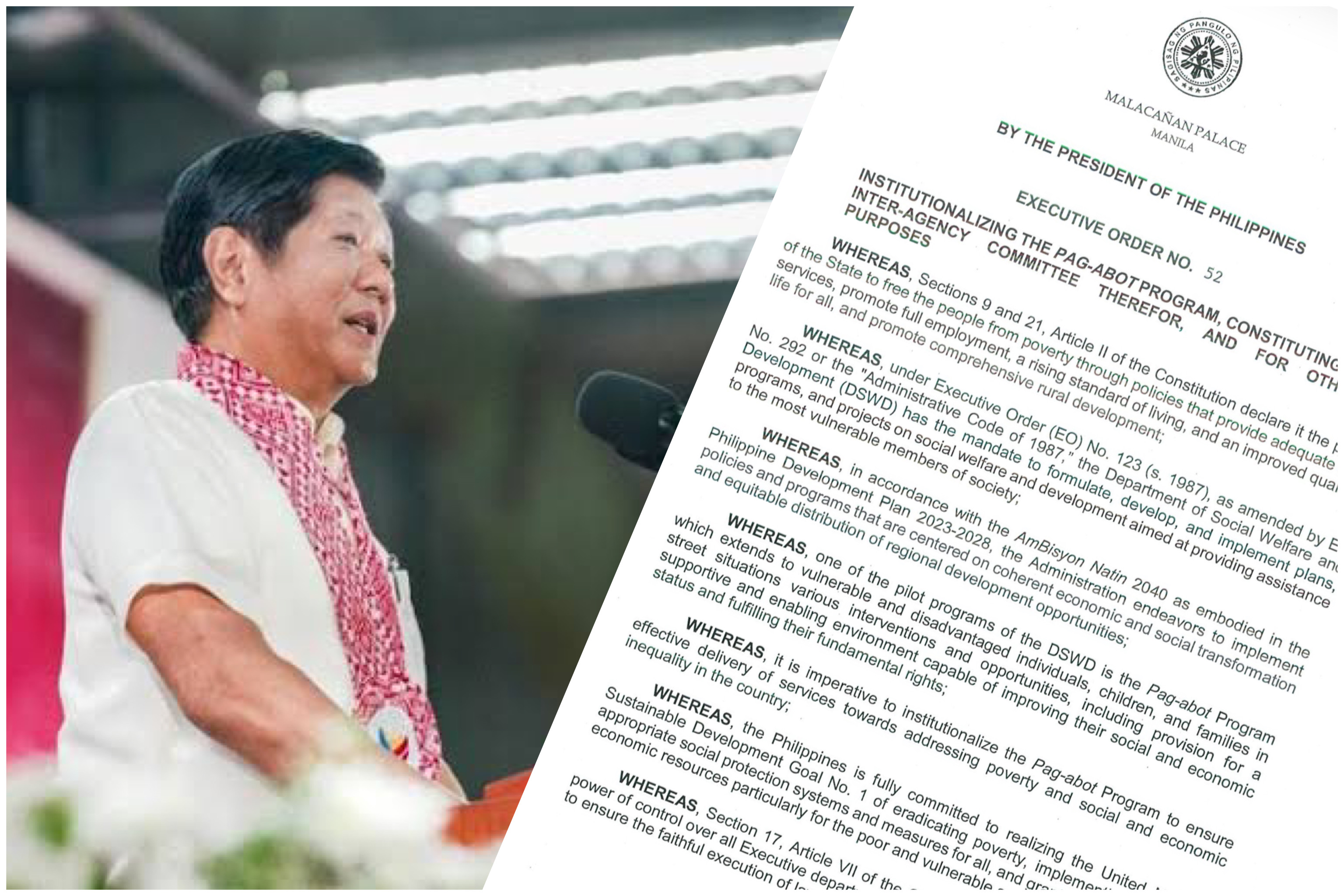Marcos institutionalizes DSWD's Pag-Abot Program for vulnerable people
At A Glance
- The Pag-abot Program consists of component assistance packages such as transportation and relocation, financial assistance, transitory shelter assistance, livelihood assistance, and employment assistance.
President Marcos Jr. issued Executive Order (EO) No. 52, which institutionalizes and expands the Department of Social Welfare and Development (DSWD)’s Pag-abot Program to take street dwellers and other poor and vulnerable individuals off the streets and help them become productive members of society.

Executive Secretary Lucas Bersamin signed EO 52, by the authority of the President, on Jan. 18.
Based on the EO, Marcos made the move to institutionalize the program for an enhanced and unified delivery of services to vulnerable and disadvantaged individuals through the provision of social safety nets and protection against risks brought about by poverty.
“It is imperative to institutionalize the program will ensure effective delivery of services towards addressing poverty and social and economic inequality in the country,” Marcos’ EO read.
The Pag-abot Program consists of component assistance packages such as transportation and relocation, financial assistance, transitory shelter assistance, livelihood assistance, and employment assistance.
Also included are psychosocial support, capability building of communities and local government units (LGUs), as well as community assistance.
Under the EO, an Inter-Agency Committee will be created to ensure alignment with the objectives and complementation of activities of various government agencies.
It will be chaired by the DSWD Secretary while the Secretary of the Department of Interior and Local Government (DILG) will serve as the vice chair.
The Pag-abot Program is one of DSWD’s pilot programs, which extends assistance to vulnerable and disadvantaged individuals, children, and families in street situations by providing various interventions and opportunities.
Under the AmBisyon Natin 2040 as embodied in the Philippine Development Plan 2023-2028, the administration endeavors to implement policies and programs that are centered on coherent economic and social transformation and equitable distribution of regional development opportunities.
The Philippines has committed to realizing United Nations Sustainable Development Goal No. 1 to eradicate poverty, by implementing nationally appropriate social protection systems and measures for all and granting equal access to economic resources, particularly for the poor and vulnerable sector of society.